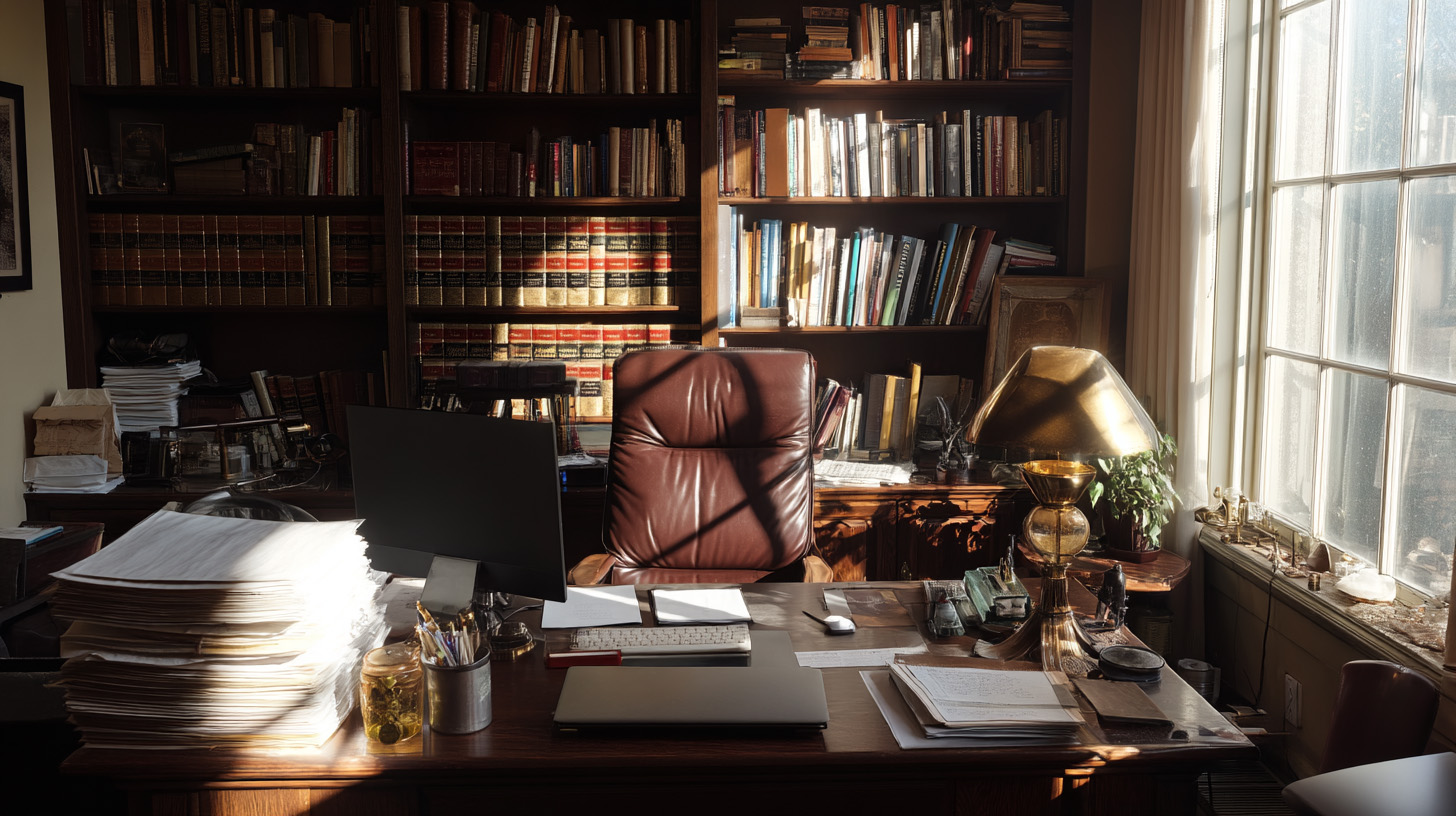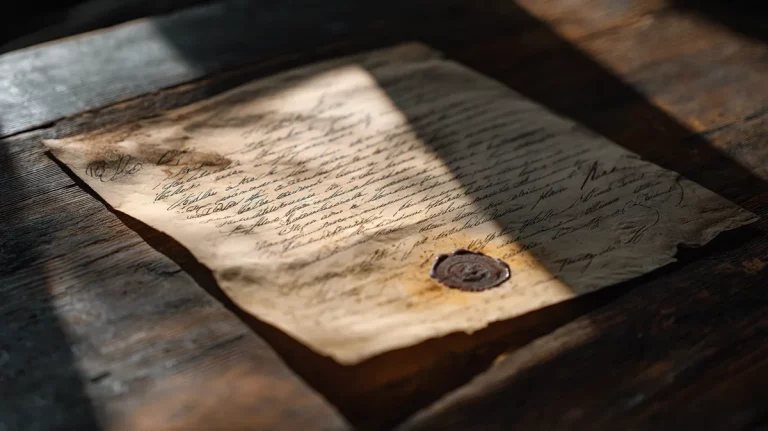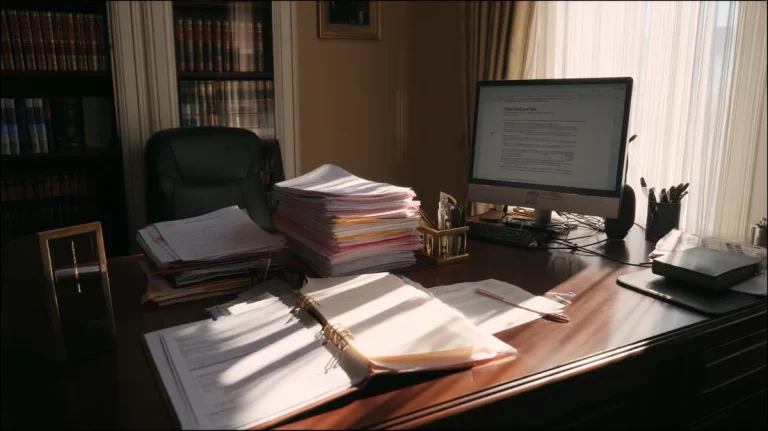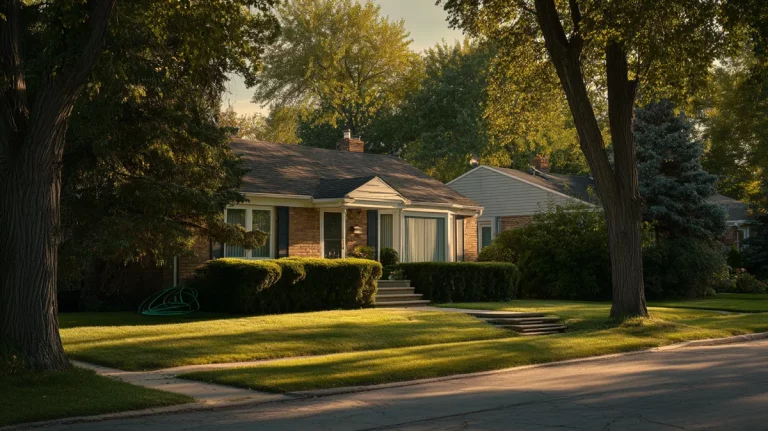Quick Answer
Most of the time the attorney’s fee for a probate case comes straight out of the estate itself, so the executor signs the check but the heirs ultimately pay the bill.
State law typically sets the clock on when you must get the case rolling. File late and you invite higher probate cost because assets can’t be sold, taxes pile up, and the probate process starts with extra court hearings.
Since fees are typically paid from the estate’s checking account, each month of delay slices a little more off what your family ultimately inherits.
Understanding Probate and Attorney Involvement
What Is Probate?
Probate is the court-supervised transfer of property from a person who has just died to the people entitled to it under a will or under probate law when no will exists.
The judge confirms the executor of an estate, reviews creditor claims, and issues orders so the title company, the DMV, and even the bank can update their records. That legal structure matters because every estate is different. Some families deal with a small estate containing one checking account, while others wrangle a complex estate stuffed with rental houses, crypto wallets, and collectibles.
Understanding probate helps you see why an experienced attorney may be crucial when the complexity of the estate skyrockets.
Role of a Probate Attorney
A probate lawyer drafts the petitions, notices, and inventories, appears in probate court on hearing day, and keeps the executor on any communications with creditors or cranky heirs. The more moving parts involved in the probate process, the greater the effort from the attorney, and that effort is the key factor affecting attorney fees.
A seasoned probate attorney can streamline the probate process, minimize probate delays, and manage the estate efficiently so the burden of probate doesn’t swallow family life for a year or more. Many probate lawyers also handle estate planning and can show you how to avoid probate next time.
Common Fee Structures for Probate Attorneys
Hourly Rates
Some probate attorneys charge by the clock, logging every email and phone call. These hourly attorney charges feel familiar to anyone who has hired a lawyer before and work well when the size of the estate is small or the issues are straightforward.
The downside is unpredictability. If the probate process can feel like a never-ending story, the total cost may spiral.
Flat Fees
Other firms prefer a flat fee because both sides know the total cost up front. A flat fee can cover probate services such as preparing the initial petition, attending the first hearing, and filing fees for certified copies. Fees are structured in advance, which helps families manage probate costs effectively.
When fees are based on a package, make sure you understand what is included and what additional fees kick in if the probate matters grow more complicated.
Percentage of the Estate
In states with a statutory fee, the lawyer’s compensation is a sliding percentage of the gross value of the estate.
For example, Nevada puts probate attorneys on a sliding scale: four percent of the first $100,000, three percent of the next $100,000, two percent up to $800,000, then one percent on the next $9 million, and one-half percent on the chunk above that until the court steps in at $25 million.
Iowa uses a more compact schedule. Six percent on the first $1,000, four percent up to $5,000, then two percent on everything above that.
Because the value of the estate drives these statutory fees, a house that doubles in price can push probate lawyer compensation skyward even when the underlying legal work stays exactly the same.
Who Is Legally Responsible for Paying Probate Attorney Fees?
Payment from the Estate
Under most state law, probate attorneys’ compensation, court costs, and filing fees are paid from the estate’s bank account before any distribution to heirs.
The executor of an estate signs the retainer, and the attorney invoices the estate administration once the judge signs an order approving fees.
That means the estate covers probate attorney fees first, and only the residue flows to beneficiaries.
When Executors or Heirs Might Be Personally Liable
Rarely, the executor or even an heir can be on the hook.
If an executor hires counsel without court approval in a supervised administration, or drags the case out in bad faith, the judge can order the executor to cover probate attorney fees personally.
Heirs become liable when they take property early and leave the estate short on cash to pay these fees.
How the Court Oversees Probate Fees
Court Approval Requirements
Probate courts act as gatekeepers to be sure fees are reasonable.
Judges can trim bills that look padded, especially where the complexity of the estate is low.
Disputes Over Fees
When beneficiaries think the lawyer fees vary wildly from market rates, they can file objections. The dispute usually ends in a hearing where the attorney must explain the fee structure, the time entries, and why the tasks were required.
Settlements are common, but hot fights can result in additional fees because lawyers charge for arguing about legal fees.
Tips for Managing Probate Costs
Requesting Fee Estimates
Ask for a written estimate at the start. A good attorney remains fully informed about the workload and will regularly update their attorney fee projection as new assets surface or litigation erupts. Clear communication keeps surprises off the invoice.
Negotiating Fees
Families can negotiate. Some firms will cap hourly totals, some blend hourly and flat fee pieces, and some reduce the percentage once the gross value of the estate tops a certain level.
Negotiating early makes for a smoother probate process because everyone knows the fee structure.
Alternatives to Formal Probate
If the estate qualifies as a small estate affidavit or summary administration, you may avoid probate entirely.
Simplified probate shortcuts exist in most states for estates under a statutory asset ceiling. Using them minimizes probate delays and the overall cost of doing business with the court.
Final Thoughts on Paying Probate Attorney Fees
No two estates look alike. Probate costs swing with the lawyer’s billing method, the estate’s size, and how tangled the assets are. Paying for skilled legal help may seem steep at first, but the right probate attorney can spare you from costly missteps.
Understanding who pays the probate bills, and when, helps heirs manage expectations, plan cash flow, and keep the entire probate and estate planning journey on track.
FAQ’s About Paying Probate Attorney Fees
Attorney fees and the factors influencing them vary, but many estates pay between two and four percent of the gross value of the estate when a statutory fee applies. Where fees are based on hours, the total cost depends on how quickly the executor supplies documents and how many probate court hearings pop up. Keeping good records and answering your lawyer’s emails promptly can cut effort from the attorney and hold costs down.
In most probate matters, fees are paid from the estate’s funds, not the executor’s wallet. Still, if an executor acts outside the judge’s order or ignores deadlines, the court can order that person to pay these fees. Staying inside the lines keeps the burden of probate on estate funds instead of personal savings.
A flat fee keeps the numbers clear up front, but if creditors crawl out of the woodwork or a long-lost heir shows up, the firm can tack on extra charges spelled out in the agreement.
Waiting to file can inflate probate fee totals because the property may appreciate. Statutory schedules use the date-of-death value, yet delays can still rack up extra legal fees for emergency motions, creditor claims, and accounting extensions.
Setting up a living trust and similar planning tools lets your assets move straight to your heirs without a run through the courthouse.






